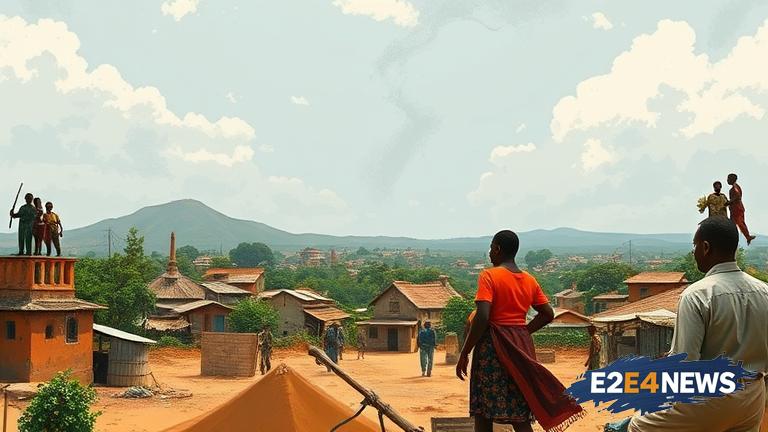Angola, a country rich in natural resources, is facing an unprecedented economic crisis. Despite the nation’s wealth, the majority of its citizens are struggling to make ends meet. The rich, however, continue to accumulate wealth, further widening the gap between the haves and have-nots. This stark contrast has sparked outrage and concern among the population. The government’s inability to effectively manage the country’s resources has led to widespread poverty and inequality. The elite class, comprising politicians, business leaders, and high-ranking officials, have been accused of corruption and embezzlement. They have been feasting on the country’s wealth, while the poor are left to fight for scraps. The situation has become so dire that many Angolans are forced to live in squalid conditions, without access to basic necessities like food, water, and healthcare. The country’s economy has been in free fall, with the kwanza, its currency, plummeting in value. This has led to a sharp increase in prices, making it even more difficult for the average citizen to afford basic goods. The government’s response to the crisis has been inadequate, with many critics accusing them of being out of touch with the reality on the ground. The international community has also been criticized for not doing enough to help Angola, with some accusing them of turning a blind eye to the country’s plight. As the situation continues to deteriorate, many Angolans are losing hope. They feel that their government has abandoned them, and that the international community is not doing enough to help. The rich, on the other hand, continue to thrive, with many of them investing their wealth abroad, rather than using it to develop their own country. This has led to a brain drain, with many of Angola’s brightest minds leaving the country in search of better opportunities. The consequences of this crisis will be far-reaching, with many predicting that it will take years, if not decades, for Angola to recover. The country’s future looks bleak, with many wondering how things got so bad. The answer lies in the corrupt system that has been allowed to flourish, with those in power using their positions to enrich themselves, rather than serve the people. The people of Angola deserve better, and it is time for the government and the international community to take notice. The situation in Angola is a stark reminder of the dangers of corruption and inequality, and the need for effective governance and economic management. It is a wake-up call for the world to take action, to help those in need, and to ensure that the wealth of a nation is used for the benefit of all its citizens, not just a privileged few. The crisis in Angola is a complex issue, with many factors contributing to its severity. However, one thing is clear: the rich are getting richer, while the poor are getting poorer. This is a trend that must be reversed, if Angola is to have any hope of a prosperous future. The government must take immediate action to address the crisis, and the international community must provide support and assistance to help the country get back on its feet. The people of Angola are crying out for help, and it is time for the world to listen.
